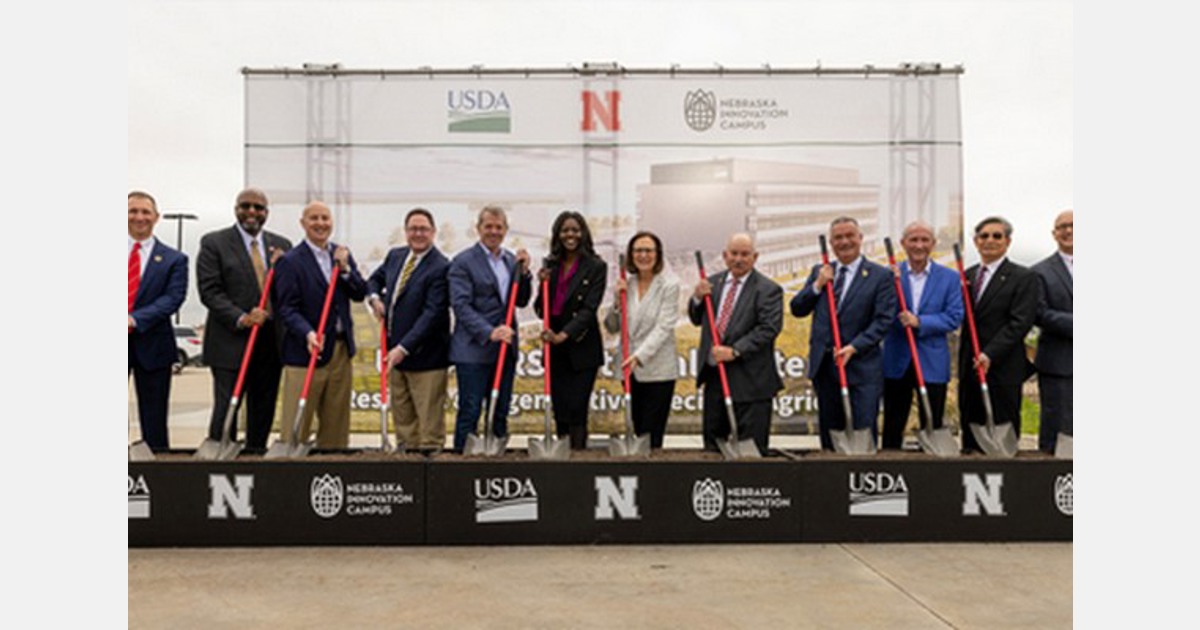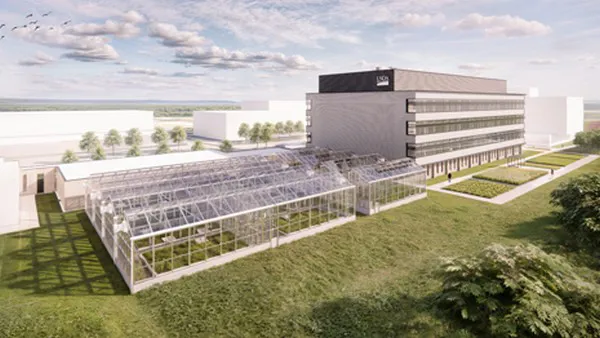Nebraska
Nebraska Unicameral looks at bill to phase out inheritance tax in Nebraska

LINCOLN, Neb. (KOLN) – The Unicameral started discussing inheritance tax and whether or not the tax on estates should be phased out on day 30 of the legislative session.
State Sen. Robert Clements introduced the bill. It would repeal the inheritance tax that takes between 1% to 15% of a person’s estate once its passed on. Clements said Nebraska is one of only five states in the U.S. to collect inheritance tax, and he said it’s not fair to those who inherit money. Particularly relatives who aren’t children or non-relatives who pay a higher tax.
“Nebraska is losing retirees to the 45 states who don’t take up to 15% from their estates when they die,” State. Sen. Clements said. “The saying is ‘don’t get caught dead in Nebraska.’”
State Sen. Jane Raybold warns that getting rid of the inheritance tax might increase property tax.
“Inheritance tax is a progress If tax that impacts those small number of Nebraskans and their estate,” State Sen. Raybould said. “Absent this source of revenue, the greater number of Nebraskans will share in the cost of any property tax increase.”
Clements said he does want to look and pass ways to offset the loss in revenue if the tax were to go away. The body didn’t vote on the issue on Tuesday, and it’s unclear when the debate will pick back up.
Click here to subscribe to our 10/11 NOW daily digest and breaking news alerts delivered straight to your email inbox.
Copyright 2024 KOLN. All rights reserved.

Nebraska
US (NE): Nebraska innovation campus break ground for new research center on precision agriculture

The U.S. Department of Agriculture’s (USDA’s) Agricultural Research Service (ARS), the University of Nebraska–Lincoln (UNL), and Nebraska Innovation Campus held a groundbreaking ceremony today to launch the construction of the National Center for Resilient and Regenerative Precision Agriculture. The state-of-the-art research center will be located on Nebraska Innovation Campus in Lincoln, Nebraska. It will primarily focus on the challenges and opportunities in agricultural innovation for the 21st century.
Federal, state and university leaders launched construction of the USDA’s National Center for Resilient and Regenerative Precision Agriculture with a May 6 groundbreaking at Nebraska Innovation Campus. Pictured (from left) is Chris Kabourek, interim president of the University of Nebraska; Rodney D. Bennett, chancellor, University of Nebraska–Lincoln; U.S. Senator Pete Ricketts; U.S. Representative Mike Flood; Nebraska Governor Jim Pillen; Chavonda Jacobs-Young, under secretary for research, education and economics and chief scientist for the USDA; U.S. Senator Deb Fischer; Paul Kenney, University of Nebraska regent; U.S. Representative Don Bacon; Jack Stark, University of Nebraska regent; Simon Liu, USDA-ARS administrator; and Mike Boehem, vice chancellor for UNL’s Institute of Agriculture and Natural Resources. (Photo by Craig Chandler, UNL University Communication and Marketing)
“There is a long history of scientific innovation and collaboration between ARS and UNL, typical of the USDA – Land-grant University partnerships across the country,” said Dr. Chavonda Jacobs-Young, USDA Chief Scientist and Under Secretary for Research, Education, and Economics. “Updated facilities ensure our best and brightest scientists work in the environment and with the tools they need to successfully meet the challenges agriculture faces.”
During this digital era, agricultural production and agricultural landscapes are transforming. Farmers and producers need the latest information technology, tools, and data to make informed and innovative decisions for their unique operations. The Center will focus on key research areas to address these challenges and promote sustainable, resilient, and highly efficient agriculture practices.
“This project is a testament to the long history of innovation, ingenuity, and adaptability of agricultural producers across the United States and right here in Nebraska. It celebrates an incredibly productive 120-year partnership between USDA-ARS and the University of Nebraska–Lincoln, and it exemplifies the passion and dedication of agricultural, state, and federal leaders,” said Mike Boehm, NU Vice President and Harlan Vice Chancellor for UNL’s Institute of Agriculture and Natural Resources. “Nebraska is a special place with incredible people, and the ripples of what we do here often extend around the globe. I believe the work that will take place in this facility will usher in a new era of American agriculture, and I’m thrilled that what happens next in agriculture will happen first in Nebraska.”
Construction will start with state-of-the-art greenhouses that will allow ARS to perform research on wheat, barley, sorghum, forage and bioenergy grasses and other crops. Research on how these plants respond to emerging pests and pathogens under a full-range of environmental conditions will empower scientists to make cutting-edge discoveries with the goal of developing climate-resilient crops for the U.S. agriculture industry.
 Image synthesis (top view) of the fully completed USDA ARS National Center for Resilient & Regenerative Precision Agriculture, including state-of-the-art greenhouses for crop, forage, and bioenergy grasses research. Image courtesy of HDR.
Image synthesis (top view) of the fully completed USDA ARS National Center for Resilient & Regenerative Precision Agriculture, including state-of-the-art greenhouses for crop, forage, and bioenergy grasses research. Image courtesy of HDR.
Once fully completed, the 120,000-square-foot agriculture research complex will function as a central hub for multidisciplinary experts, scientists and engineers who will collaborate with industry and producers to improve water and food security, increase the resilience of agricultural landscapes, and enhance agricultural profitability.
The establishment of the National Center for Resilient and Regenerative Precision Agriculture will further strengthen the long-lasting collaboration over the past century between ARS and UNL. These partnerships are instrumental in advancing research on sustainable bioenergy crops and production systems in an age where agriculture is expected to supply 40 percent of U.S. liquid fuels within the next three decades, in addition to providing food and fiber to the nation’s growing population.
The Wheat, Sorghum and Forage Research Unit and the Agroecosystem Management Research Unit are currently located on UNL’s campus. The scientists working at these units are making significant contributions to crop and livestock production systems by improving productivity, stability of production, sustainability, and profitability.
Source: ars.usda.gov
Nebraska
'What happens next in agriculture will happen first in Nebraska'
The future of agriculture innovation is now centered in Nebraska.
Federal, state and campus leaders celebrated that future during the May 6 groundbreaking of the National Center for Resilient and Regenerative Agriculture at Nebraska Innovation Campus. Learn more in the video above.
The federally-funded $160 million laboratory will double the U.S. Department of Agriculture’s science and support staff presence at the University of Nebraska–Lincoln. The first phase of construction will feature 15,000 square feet of greenhouses and 10,000 square feet of headhouse space. It will connect to the Greenhouse Innovation Center at NIC.
The new greenhouse space will allow ARS to perform research on wheat, barley, sorghum, forage and bioenergy grasses, and other crops. Research on how these plants respond to emerging pests and pathogens under a full range of environmental conditions will empower scientists to make cutting-edge discoveries with the goal of developing climate-resilient crops for the U.S. agriculture industry.
“This project is a testament to the long history of innovation, ingenuity and adaptability of agricultural producers across the United States and right here in Nebraska. It celebrates an incredibly productive 120-year partnership between USDA-ARS and the University of Nebraska-Lincoln, and it exemplifies the passion and dedication of agricultural, state, and federal leaders,” said Mike Boehm, vice chancellor for UNL’s Institute of Agriculture and Natural Resources. “Nebraska is a special place with incredible people, and the ripples of what we do here often extend around the globe. I believe the work that will take place in this facility will usher in a new era of American agriculture, and I’m thrilled that what happens next in agriculture will happen first in Nebraska.”
Leaders who provided remarks during the groundbreaking ceremony include: Chris Kabourek, interim president of the University of Nebraska system; Chancellor Rodney D. Bennett; Gov. Jim Pillen; U.S. Reps. Don Bacon and Mike Flood; U.S. Sens. Deb Fischer and Pete Ricketts; and Simon Liu, USDA-ARS administrator.
.@USDA’s new ARS facility at @UNLincoln marks the beginning of an initiative that will expand the ag frontier.
The funding we secured for this project will attract students, scientists, & industry leaders to the state, cementing NE’s role as a leader in ag innovation. pic.twitter.com/xFzixvgu3i
— Senator Deb Fischer (@SenatorFischer) May 7, 2024
The groundbreaking also drew positive media coverage. Learn more by clicking the links below.
Nebraska
Nebraska tornadoes: Omaha neighborhood grant money diverted to relief organizations

OMAHA, Neb. (WOWT) – This is the time of year when neighborhood grants are typically awarded by the City of Omaha.
After a tornado ravaged several neighborhoods in the city 10 days ago, Mayor Jean Stothert thought it would be best to earmark the money for tornado victims this year. Omaha city councilmembers unanimously approved her plan to divert the $100,000 at Tuesday’s regular meeting.
The 39 neighborhoods that were set to receive grants were told to reapply next year — that the need this year is to help the victims of the Elkhorn tornado. In the Ramblewood section, early estimates of damaged homes climbed past 160. There were countless stories of survival — now, families are trying to navigate the bureaucracy of rebuilding and getting on with their lives.
The grant will be split between the Elkhorn Public Schools Foundation and Relevant Church.
“As of today, we have a spreadsheet of 75 families that have students in the Elkhorn Public School district that no longer have a home that’s habitable,” said Stacey Falk with the foundation. “The need in the last week has been crazy because they’re just trying to find places to live.”
“We’re here to help families,” said Relevant Church Pastor Ronnie Rothe. “I don’t know of anything the city wants to do or anything like that, but if you want to help families, and we obviously know a lot of families that are affected, we’re in the center of this — we’ll get this to families because we’re already doing that.”
Relevant Church and its parking lot, right across the street from two of the hardest-hit parts of Elkhorn, organically served as a staging area for the recovery effort. Rothe says over 13,000 volunteers have organized here before heading into the neighborhood to help. His congregation alone, he said, has already raised $70,000 to help those who lost everything.
Both organizations told 6 News Tuesday afternoon they reassured the city that all the dollars would go to the victims — not a dime for administrative costs.
Copyright 2024 WOWT. All rights reserved.
-
Movie Reviews1 week ago
Challengers Movie Review
-

 Politics1 week ago
Politics1 week agoHouse Republicans brace for spring legislative sprint with one less GOP vote
-

 World1 week ago
World1 week agoAt least four dead in US after dozens of tornadoes rip through Oklahoma
-

 Politics1 week ago
Politics1 week agoStefanik hits special counsel Jack Smith with ethics complaint, accuses him of election meddling
-

 Politics1 week ago
Politics1 week agoAnti-Trump DA's no-show at debate leaves challenger facing off against empty podium
-

 News1 week ago
News1 week agoAs student protesters get arrested, they risk being banned from campus too
-

 World1 week ago
World1 week agoNine on trial in Germany over alleged far-right coup plot
-

 News1 week ago
News1 week agoVideo: Police Arrest Columbia Protesters Occupying Hamilton Hall





















